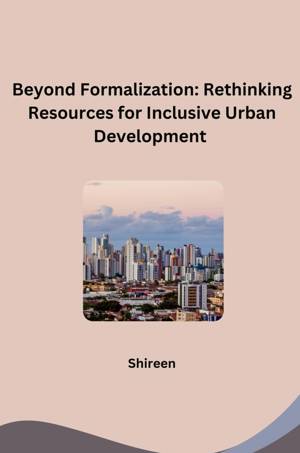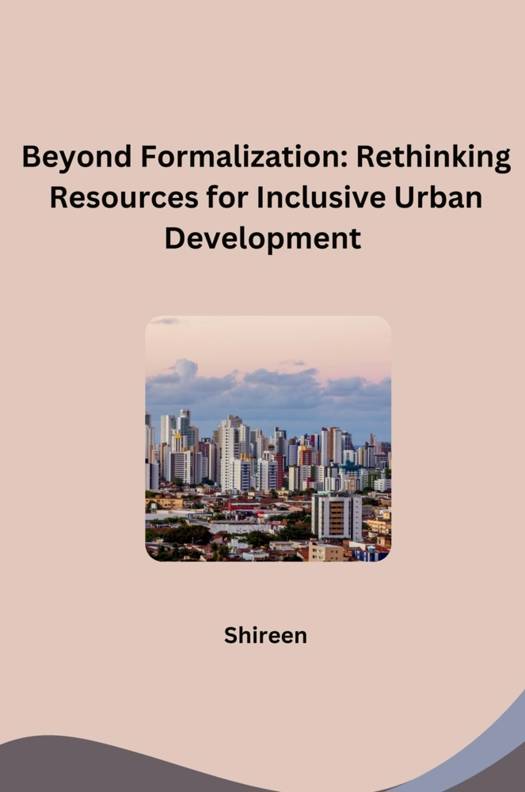
- Retrait gratuit dans votre magasin Club
- 7.000.000 titres dans notre catalogue
- Payer en toute sécurité
- Toujours un magasin près de chez vous
- Retrait gratuit dans votre magasin Club
- 7.000.000 titres dans notre catalogue
- Payer en toute sécurité
- Toujours un magasin près de chez vous
Beyond Formalization
Rethinking Resources for Inclusive Urban Development
Shireen
Livre broché | Anglais
29,95 €
+ 59 points
Description
Creating thriving urban spaces for all requires a wealth of resources. But traditional approaches often rely heavily on formal channels, leaving many communities behind. Here, a new perspective emerges: "beyond formalization," rethinking how we access resources for inclusive urban development. Formalized systems, while important, often exclude informal settlements and marginalized communities. Complex procedures, stringent eligibility criteria, and lack of awareness can create significant barriers. This approach fails to tap into the vast potential and ingenuity of these communities. Rethinking resources necessitates a more flexible and inclusive approach. Here are some key strategies: 1. Leveraging Local Assets: Communities possess hidden strengths and resources. Local skills, materials, and knowledge can be utilized for development projects, fostering self-reliance and empowering residents. 2. Microfinance and Alternative Funding: Traditional financing structures may not cater to informal communities. Microfinance initiatives and innovative funding models can provide essential financial tools for community-driven development. 3. Capacity Building: Empowering communities with skills and knowledge is crucial. Workshops can equip residents with project management, financial literacy, and advocacy skills, enabling them to participate effectively in resource allocation processes. 4. Collaboration and Partnerships: Bridging the gap between informal settlements and formal institutions is essential. Collaborative partnerships with NGOs, social enterprises, and the private sector can unlock resources and expertise to support community-led initiatives. This shift beyond formalization fosters a more equitable distribution of resources. It empowers communities to become active participants in shaping their urban environments, ultimately leading to more inclusive and sustainable cities for all.
Spécifications
Parties prenantes
- Auteur(s) :
- Editeur:
Contenu
- Nombre de pages :
- 308
- Langue:
- Anglais
Caractéristiques
- EAN:
- 9783384242426
- Date de parution :
- 29-05-24
- Format:
- Livre broché
- Format numérique:
- Trade paperback (VS)
- Dimensions :
- 152 mm x 229 mm
- Poids :
- 453 g







